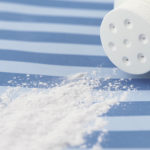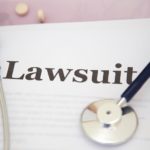Roundup® is the most widely used herbicide in the world. Manufactured by Monsanto, it is a glyphosate-based herbicide that has been available since the mid-1970s. In 2015, the International Agency for Research on Cancer (IARC), an agency of the World Health Organization (WHO), determined that glyphosate was a probable carcinogen (group 2A). However, other studies disagreed, giving both sides in litigation ammunition in their fight over liability.
Glyphosate is “a non-selective, phosphonomethyl amino acid herbicide registered to control weeds in various agricultural and non-agricultural settings.” Thousands of plaintiffs suing Monsanto have alleged that Roundup® caused various cancers including non-Hodgkin lymphoma (NHL), lymphocytic lymphoma, chronic lymphocytic leukemia, B-cell lymphoma, hairy cell leukemia, and malignancies. They have also alleged that Monsanto knew of the dangers and deliberately withheld and suppressed information about the risks.
Currently there are more than 1250 lawsuits pending in U.S. District Court in San Francisco with thousands more in state courts. Several California cases resulted in significant losses for Monsanto, which will no doubt fuel more litigation. More recently, a much-anticipated trial against Monsanto was postponed in St. Louis. That litigation involves 18,000 plaintiffs. Interestingly, the case was to feature live testimony from several Monsanto executives subpoenaed by the legal team representing plaintiff Sharlean Gordon. Such testimony could not be subpoenaed in the California cases. There is speculation that Monsanto may want to settle. Whether that is true or not, it is evident that scientific research and expert testimony is playing a crucial if unpredictable role in this litigation.
In the context of litigation involving Roundup®, credible Hematology and Oncology experts are key. Complex research must be explained to a jury to support or defend claims that the herbicide caused cancer in a particular plaintiff. Conflicting studies raise serious questions about liability and experts must be able to convincingly testify to a jury one way or another. However, there is an added layer of complexity in the Roundup® cases because plaintiffs are introducing evidence that affects the credibility of the experts in an indirect way. Plaintiffs argue internal Monsanto emails indicate it attempted to influence research and regulators as to the safety of Roundup® making Monsanto experts look unreliable.
As noted by a paper in the American Journal of Public Health, “[c]onclusions as to the causation of adverse effects by environmental and occupational agents may have powerful societal consequences.” As a result, care must be taken that scientific studies, researchers, publishers, and policy makers are examined to ensure there is transparency and conflicts of interest are revealed. In some ways, the ongoing litigation and the expert witnesses who testify are helping that process.
Toxicology is a complex field of medicine dealing with the treatment of poisoning, drug overdose, and exposure to toxins or biological agents. Medical Toxicologists must understand not only the effects of various toxins, but they also must diagnose and treat patients who have suffered from a wide range of exposures and poisonings. Any case involving herbicides will necessarily require highly qualified Toxicology experts to assist. If you need assistance finding nationally recognized Hematology, Oncology, and Toxicology experts for your case, please contact Elite Medical Experts.




